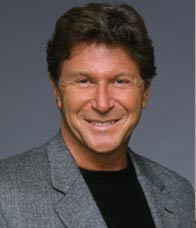|
Interview with Ken Dychtwald on Midlife Crisis
February 2009 - By Dr. Nagendra V Chowdary
 Ken Dychtwald
Ken DychtwaldKen Dychtwald, founding president and CEO of Age Wave 
This year has been particularly challenging
for both employers and employees.
Many companies are reducing
their workforce in response to the
current economic downturn and are
forced to seek greater productivity
from their remaining employees.
Many employees are experiencing
significant uncertainty and anxiety regarding
their career direction and stability.
In this environment, some of
the key lessons from the New Employee/
Employer Equation Study are
especially pertinent.The most successful
companies in today’s
economy may turn out to be the ones
who are able to develop targeted strategies
to retain theirmost valuable employees,
maintain a positive culture and morale despite the
|
|
economic difficulties, andmotivate and engage key
segments of their workers to ensure
continued productivity during
downsizing. What is your assessment of the
possible impact of the US financial
crisis on the midlife careers of millions
of employees across the globe,
let alone US? Do you think that the
financial crisis would have brought
in advance all the unpleasant experiences?
Workers of all ages are feeling the effects
of today’s financial crisis. In
some ways, midcareer workers will
likely fare better than younger cohorts.
Due to their greater experience
and tenure, unemployment is historically
lower, and the effects of recessionmoremoderate,
among older employees.
For example, as of November
2008, unemployment among those
age 25 to 34 in the US was 6.9% (up
from 4.9% in January 2008). Among
those age 35 to 44, unemployment
was 5.4% in November (up from
3.6% in January), and among those
age 45-54 unemployment was 5.1%
(up from 3.4% in January).
However, many midcareer workers
will see their ambitions and anticipated
career paths delayed for
months or even years due to current
economic conditions. For a cohort already
likely to feel frustrated with
their level of progress and fulfillment
from work, today’s recession is likely
to increase levels of dissatisfaction
even further. What is your advice to all such
people going through such traumatic
times? What are the few things that
they should keep a tab on and keep
working on so that life, if not as it
was, at least does not deteriorate?
Middlescence can be a time of confusion,
frustration, and burn-out. But it
can also be an opportunity for personal
discovery, reenergizing, and reinvention.
Specific strategies I recommend
to middlescents include:
- Recognize midlife and even later
life can be a time of new beginnings.
With improved healthcare, diet, and
exercise, we are living longer, and
with greater health and vitality, than
any prior generation. The “longevity
bonus” that our generation enjoys
gives us opportunities for second
chances, to pursue new careers, fall
in love again, go back to school, and
reconnect with our families and
spouses – nomatter what stage of life. - Leverage your new freedoms.
Inmiddlescence you have capabilities
and resources you did not have in
your younger days. In this time of our
lives many of us have developed
knowledge, skills, relationships, and
financial resources that empower us
to pursue careers and activities we are
most passionate about. - Continue learning.
Today’s middlescents are far more
educated than those of earlier generations.
Lifelong learning will not only
continue to empower your career, but
can also enrich your life with new interest
and passions. - Forge new relationships.
In our global surveys, people around
the world consistently tell us that relationships
with friends and family
are the key to happiness throughout
life. Creating new friendships and rekindling
relationships with your
spouses and family during
middlescence will be a source of fulfillment
for years to come. - Give back.
In our youth, many of us are focused
on our own needs and ambitions. As
we enter middlescence, we begin to
recognize that true fulfillment comes
largely from what we give, not what
we get. You may find that contributing
time and resources to those in
need, volunteering in your community,
and devoting your energy to
your family and children will help
make middlescence and beyond the
best years of your life.
You have observed in your (written
along with co-authors, Robert
Morison and Tamara Erickson) brilliantly
written article (“Managing
Middlescence”, HBR, March 2006)
that, “Middlescent restlessness isn't
new, but it plays out differently in different
generations. It seems to be hitting
today's midcareer workers harder
than it hit their predecessors.” Can
you take us through how the generational
differences would impact
middlescent restlessness?
There are three major differences between
today’s midcareer workers and
those of prior generations which can
affect how they experience
middlescence. First, their lives and
family responsibilities are often far
more complex and demanding. Many
married later, and some had multiple
marriages, creating blended families
with step-children and multiple inlaws.
More than among any prior
generation, today’s midcareer women
are likely to be working, adding to the
stress and responsibilities as couples
attempt to balance work and family
life.Meanwhile, many are now caring
for aging parents just as they are raising
children, managing increasing job
responsibilities, and attempting to
save and prepare for their own retirement.
1.
Coca-Cola's Belgian Crisis Case Study
2. ICMR
Case Collection
3.
Case Study Volumes
|
